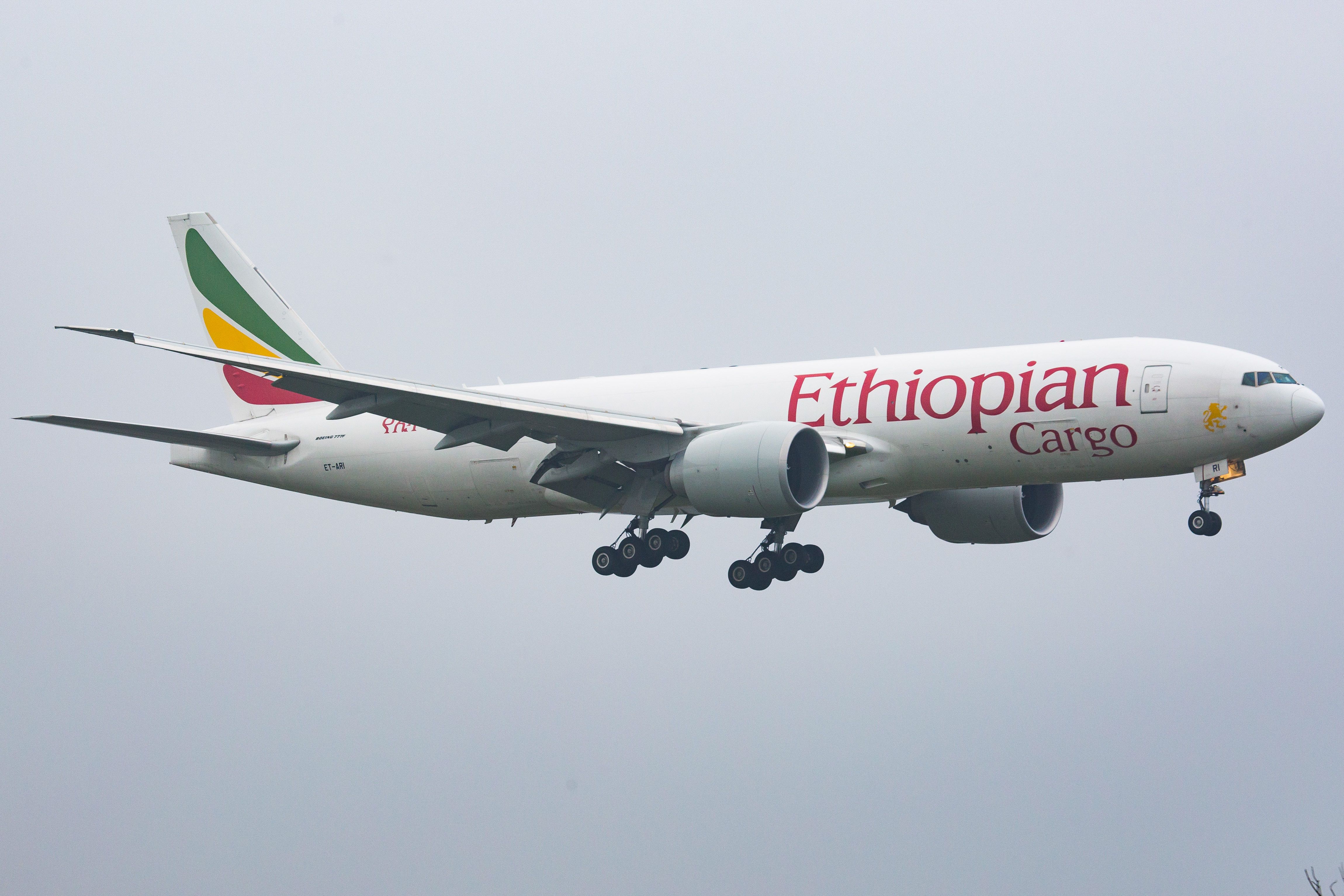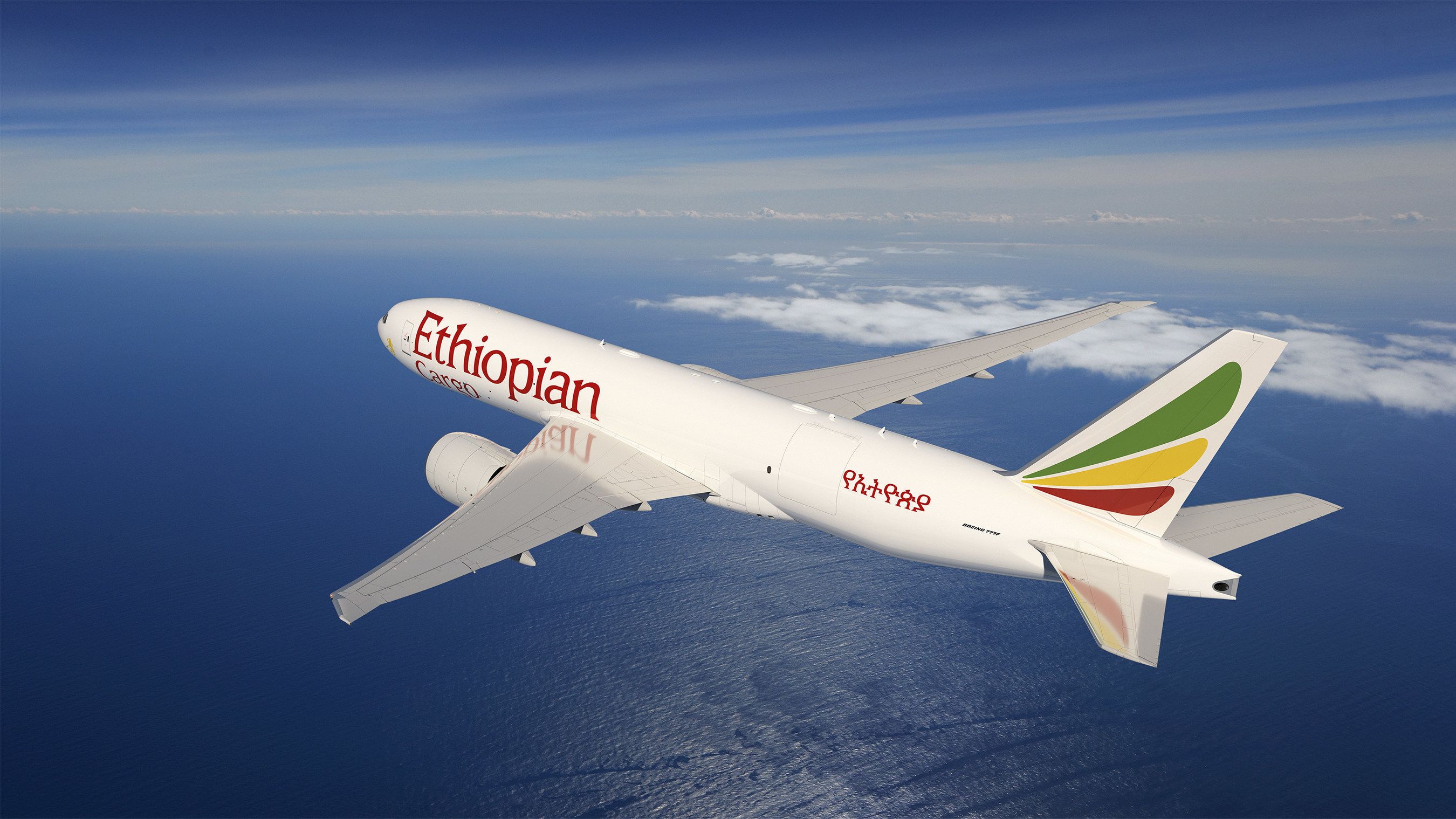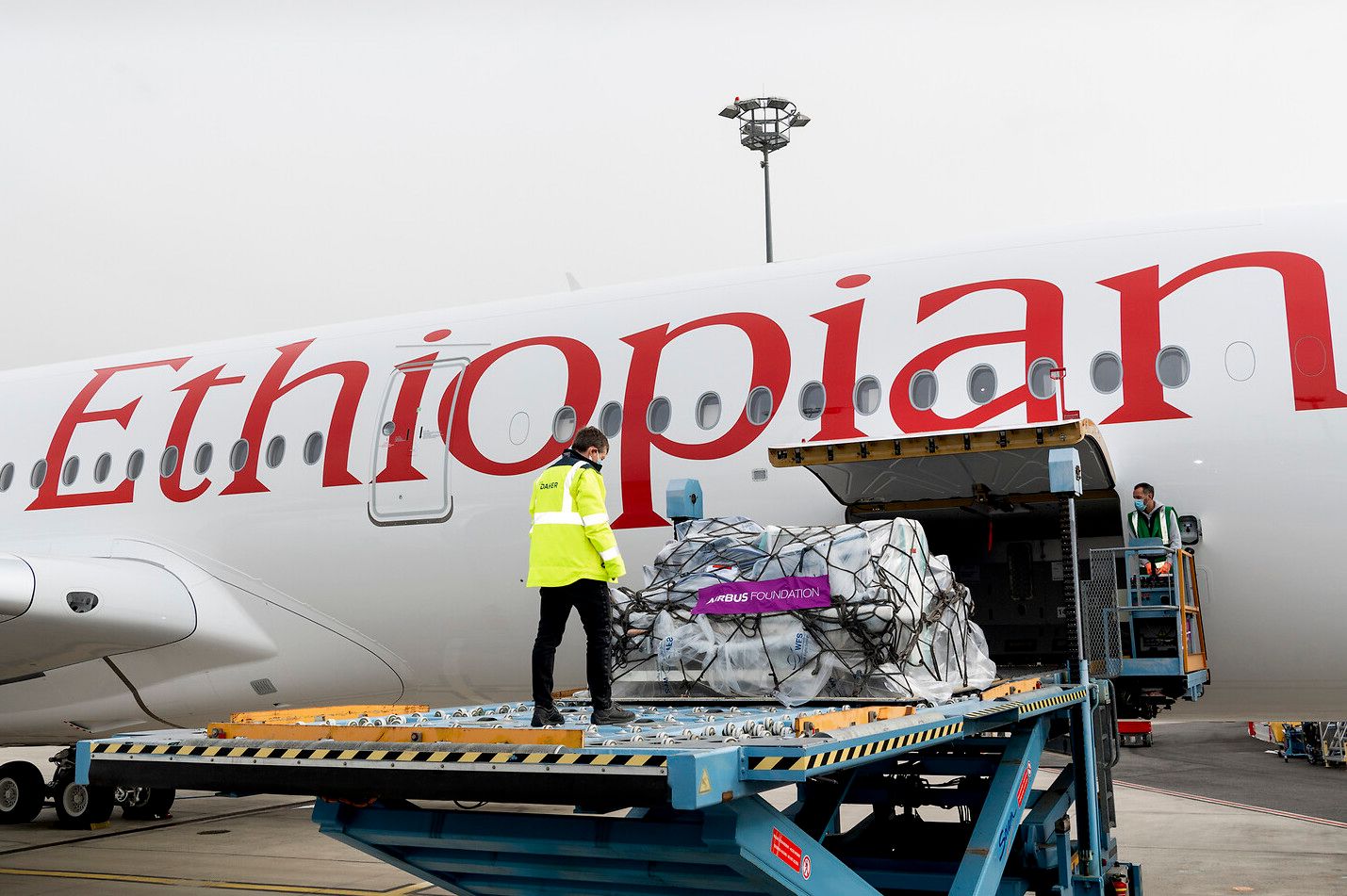Thanks to a thriving cargo business, Africa's largest airline has weathered the pandemic remarkably well. And Ethiopian Airlines has no intention of slowing down when it comes to airfreight. The carrier was just revealed as the previously undisclosed customer of an order for five Boeing 777Fs. The upcoming additions will expand Ethiopian's current fleet of nine of the Triple Seven freighter version.
Disclosing the order, which has been listed as unidentified on Boeing's orders and deliveries sheet, on Wednesday, Ethiopian Airlines Group CEO Mesfin Tasew shared the following statement,
"The addition of these five 777 Freighters into our cargo fleet will enable us to meet the growing demand in our cargo operation. While cementing our partnership with Boeing with new orders, the growth of our freighter fleet takes the capacity and efficiency of our shipment service to the next level."
Ethiopian's cargo expansion
Meanwhile, we are far from seeing the end of Ethiopian's cargo plans nor its loyalty to Boeing as it continues to grow its dedicated freighter fleet. In March this year, the two companies signed a Memorandum of Understanding (MoU) for Ethiopian to purchase five 777-8 freighters. When the 777X and its cargo-specific derivative will be ready for delivery is another matter.
Mr Tasew continued on today's announcement,
"We always strive to serve our customers with the latest technology aircraft the aviation industry could offer. Our cargo terminal is Africa's largest, coupled with fuel-efficient freighters and well-trained cargo handling professionals will enable our customers get the best quality shipment service. Customers can rely on Ethiopian for wide-ranging cargo services across five continents."
Would have been a fleet of ten but for a fire
The 777F is currently the world's largest, longest-range and highest capacity twinjet freighter flying with 17% lower fuel use and emissions than prior airplanes. As previously mentioned, Ethiopian already operates nine of the type, with an average age of six years. It used to have ten, but one (ET-ARH) caught fire on the ground while loading cargo at Shanghai Pudong in July 2020.
Ihssane Mounir, Boeing's Senior Vice President of Commercial Sales and Marketing, commented on the latest order and doubling of Ethiopian's 777F fleet,
"Ethiopian Airlines' all-Boeing freighter fleet provides them with unrivalled capability and flexibility as Africa's largest cargo operator. These additional 777 Freighters will enable Ethiopian to capitalize on near-term cargo demand, while positioning the airline for further expansion in the future."
During the pandemic, Ethiopian was one of the first airlines to embrace utilizing passenger aircraft to move cargo, sparking the so-called 'preighter' movement. At one point, as many as 25 of the airline's passenger jets had their seats removed in order to accommodate more cargo. After seeing the airline through the worst of the lockdowns and downturns in passenger traffic, they have since been restored, along with much of Ethiopian's route network - including new and exciting additions.



